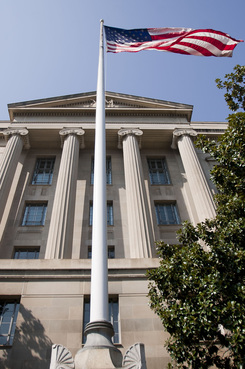Jonathan S Feld

October 25, 2022 | Law.com
Pitfalls of the Attorney-Client PrivilegeThe attorney-client privilege is a critical component in the legal process but its protection is constantly being challenged in complicated corporate investigations. There are measures that attorneys should, where possible, take steps to mitigate the risk of losing the privilege.
By Jonathan S. Feld and Lisa M. Burnett
9 minute read

January 16, 2015 | Corporate Counsel
DOJ's Focus on Corporate Cooperation and Self-DisclosureRecent speeches from senior U.S. Department of Justice officials are signals to corporate counsel to stress the importance of, and actions needed for, corporate cooperation and self-disclosure.
By Jonathan S. Feld
9 minute read

January 16, 2015 | Corporate Counsel
DOJ's Focus on Corporate Cooperation and Self-DisclosureRecent speeches from senior U.S. Department of Justice officials are signals to corporate counsel to stress the importance of, and actions needed for, corporate cooperation and self-disclosure.
By Jonathan S. Feld
9 minute read

May 12, 2014 | Corporate Counsel
Coping With Evolving US, State Cybersecurity RulesThe technology moves faster than efforts to keep up with it, so government efforts to come up with mandatory compliance schemes might not be effective.
By Jonathan S. Feld, Susan E. Asam and Leyton Nelson
6 minute read
May 25, 2000 | Law.com
Voluntary Disclosure to the Government: Will It Shield You From Qui Tam Claims?Having discovered that it was accidentally overbilling the government, a company voluntarily discloses the overcharges to the local U.S. Attorney's Office. Successful negotiations lead to a resolution without any criminal charges. Within days of the settlement, a former employee files a False Claims lawsuit. Even though the disclosure to the government was complete, can the company still be exposed to qui tam claims? That depends.
By Jonathan S. Feld and Michael S. Weisman
10 minute read
December 18, 2008 | Law.com
The Selective-Waiver Doctrine: Is It Still Alive?In the past few years, attorneys and commentators had sought to establish the selective-waiver doctrine by proposing changes to the Federal Rules of Evidence. This in-depth analysis explains why.
By Jonathan S. Feld and Blake Mills
8 minute read
Trending Stories
- 1How Amy Harris Leverages Diversity to Give UMB Financial a Competitive Edge
- 2Pa. Judicial Nominee Advances While Trump Demands GOP Unity Against Biden Picks
- 3The Unraveling of Sean Combs: How Legislation from the #MeToo Movement Brought Diddy Down
- 4Publication of Information Regarding Client Matters
- 5The State of Cost Recovery — Post COVID
More from ALM
- Legal Speak at General Counsel Conference East 2024: Match Group's Katie Dugan & Herrick's Carol Goodman 1 minute read
- Legal Speak at General Counsel Conference East 2024: Eric Wall, Executive VP, Syllo 1 minute read
- Legal Speak at General Counsel Conference East 2024: Virginia Griffith, Director of Business Development at OutsideGC 1 minute read



